Post
A catch
Save a catch to start your fishing logbook. You will be able to to share it with the community if yo want!
A fishing trip
Post an ad to go fishing with other fishermen
Save a catch to start your fishing logbook. You will be able to to share it with the community if yo want!
Post an ad to go fishing with other fishermen
Share a thought, a question with the community
My favorite cities
×Keep your rods ready for Alpha in Iron. The fishing forecast is currently 3. The most caught fishes here are the bull trout, the humpback chub, the lahontan cutthroat trout and the black crappie. Come try the most famous fishing techniques like the surfcasting, bass trolling, big game fishing or dive fishing.
Our fishing forecast of Alpha indicates the best time to go fishing in this city.
The Bull trout
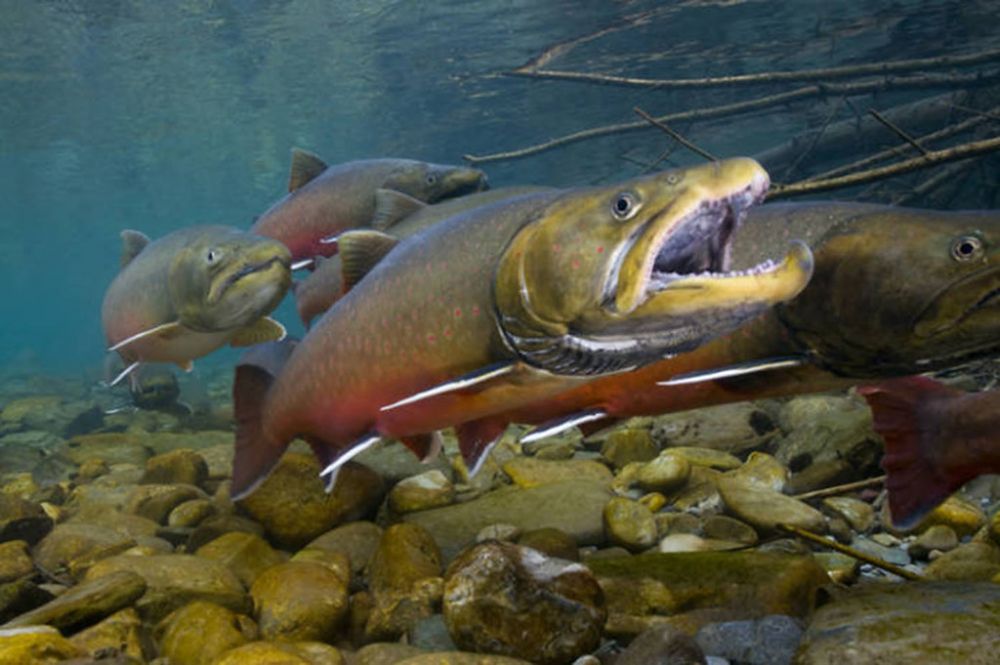
The Bull trout belongs to the Salmonidae family. It can measure up to 103 cm long and weigh up to 14.5 kg. It can live for a dozen years. It breeds from July to December. It can be fished from June to February. Like other arctic char species, the fins of a bull trout have white leading edges. Its head and mouth are exceptionally large for salmonidae, which gave it its name. Bull trout up to 103 cm long and weighing 14.5 kg have been recorded. Bull trout can be migratory, moving through major river systems, lakes and the ocean, or they can be resident and remain in the same river all their lives. Migratory bull trout is generally much larger than resident bull trout, which rarely exceeds 2 kg. Bull trout differs from brook trout (S. fontinalis) in the absence of distinct spots on the dorsal fin, as well as yellow, orange or salmon spots on the back, as opposed to red spots with blue halos on the trout stream. Bull trout do not have the deep-dug caudal fin of lake trout (S. namaycush, another Arctic char).
The Bull trout is a famous fish you can catch in Alpha.The Humpback Chub
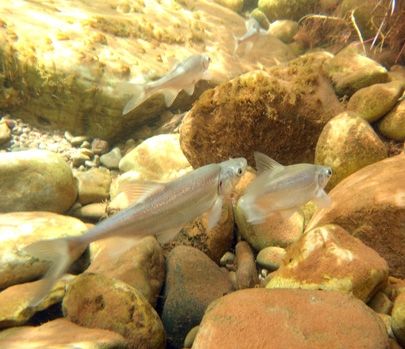
The Humpback Chub belongs to the Cyprinidae family. The maximum size recorded was 38 cm. It has a lifespan of 30 years. It spawns from April to June. It is a protected species, so the angling is prohibited. The body is almost entirely without a scale, retaining only 80 mid-lateral scales along the lateral line. The scales are deeply embedded on the surface of the fish, especially on the hump. The fish has a very streamlined body, with a thin caudal peduncle and a deeply forked tail. The fins are large and curved, and the origin of the ridge is approximately equal distance from the snout and base of the caudal fin. The mouth is lower and overhung by the muzzle. The pharyngeal arch is small, with a small lower branch. The back is pale olive grey, the sides silvery and the belly white. The dorsal fin generally has nine rays and the anal fin has 10 or more.
The Humpback Chub is a famous fish you can catch in Alpha.The Lahontan cutthroat trout
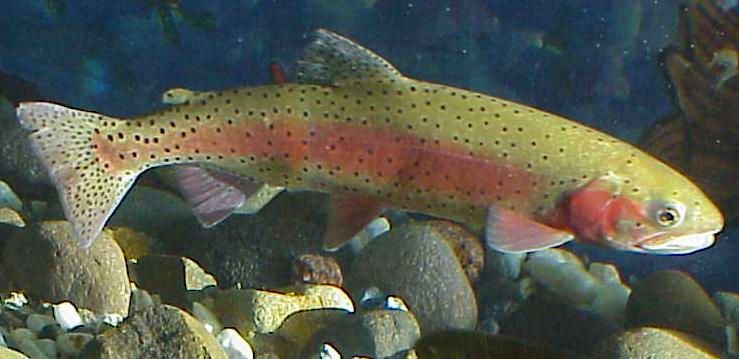
The Lahontan cutthroat trout belongs to the Salmonidae family. It can reach 1 m for 24 kg. It has a lifespan of less than 5 years. It breeds between February and July. The best time to catch it is between March and April. It is a quite large fish with a square tail to hunt prey and avoid predators. The coloring is green to greenish brown on the back, pale yellow with a pink lateral band on the sides and silver to white on the belly. Parr marks fade in mature fish. Spawning trout can be copper, red and orange, especially male. Large rounded spots, almost as black as ink, scatter little over the body, with less below the lateral line. Like other cutthroat trout, they have a distinct red to orange mark on their throats, but can be pale on lakes.
The Lahontan cutthroat trout is a famous fish you can catch in Alpha.The Black Crappie
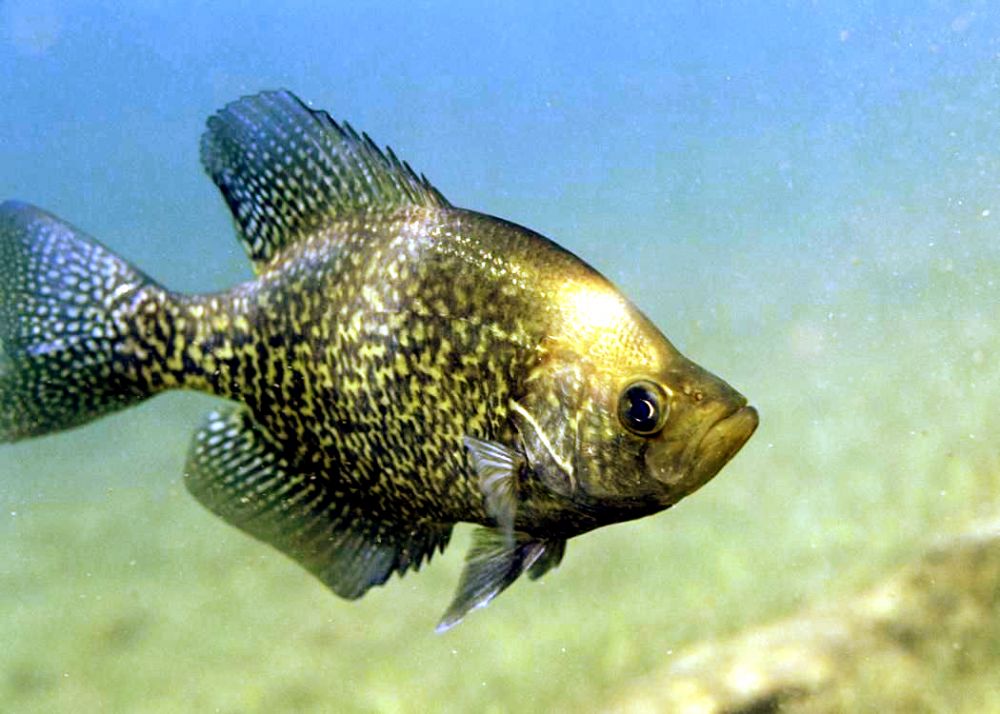
The black Crappie belongs to the Centrarchidae family. Its average length is 18 to 25 cm, up to 38 cm with a weight generally varying between 300 and 900 grams. The largest specimens can reach 1kg. The all-time record comes from Missouri with a 2.26kg black crappie, while Ontario's is 1.7kg. It breeds around the end of March. Its longevity is 7 years. It is fished in April and May. The body of this fish has the typical shape of craps and other members of the centrarchidae family, i.e. oval and flattened with thorny fins. The height of this fish represents about 33% of its length. Its color is mainly dark olive, covered with a mosaic of irregular black spots on its head, back and sometimes on its belly. The flanks are paler, but also spotty, often with silver, green or even blue highlights. The color can vary considerably depending on the environment in which the fish live. Its mouth is large, reaching to a point below the middle of the eye. The black Crappie is particularly recognizable by its large fins, which give the impression that it has sails. It has 7 to 8 spines on the dorsal fin and 6 to 7 spines on the anal fin. This is one of the main distinctions that can be made with some craps that have 10 to 12 spines on the dorsal fin. The differences between the white and black crappie are sometimes subtle. The dark spots on the black crappie are a random texture, they appear as stripes on the white crappie. The latter also has a less dark back, a longer body and, above all
The Black Crappie is a famous fish you can catch in Alpha.The Apache trout
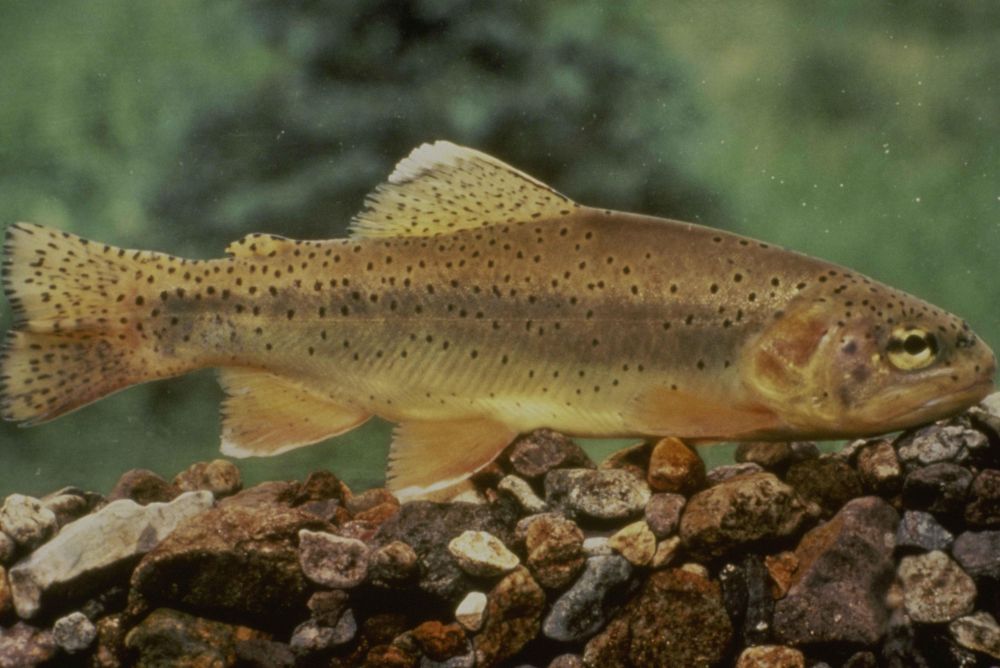
The Apache trout belongs to the Salmonidae family. The Apache trout is 15 to 61 cm long and weighs 0.2 to 2.7 kg. It rarely exceeds 25 cm but can reach up to 40 cm in its natural headwaters. It breeds from May to June. Fishing for Apache trout is prohibited all year round. Apache trout are yellowish gold in color with a golden belly and have medium sized dark spots, uniformly spaced, which can extend below the lateral line and over the dorsal fins and tail. The top of the head and back are dark olive in color, and it appears to have a black stripe/mask through each of its eyes, thanks to two small black dots on each side of the pupil. There may be a throat mark under the lower jaw, ranging from yellow to gold.
The Apache trout is a famous fish you can catch in Alpha.Our fishing forecast of Alpha indicates the best time to go fishing in this city.
Our fishing forecast of Alpha indicates the best time to go fishing in this city.
Our fishing forecast of Alpha indicates the best time to go fishing in this city.
